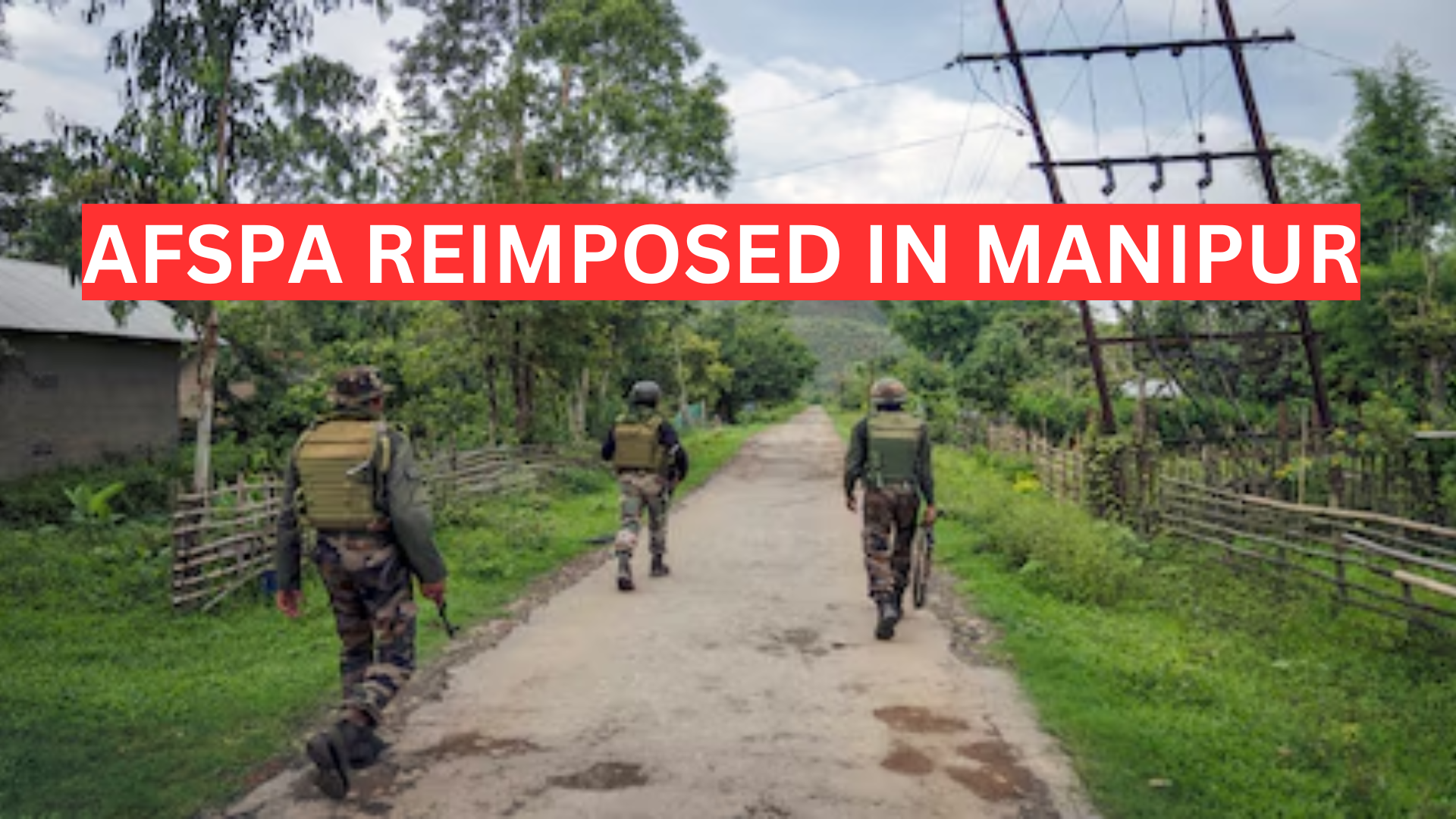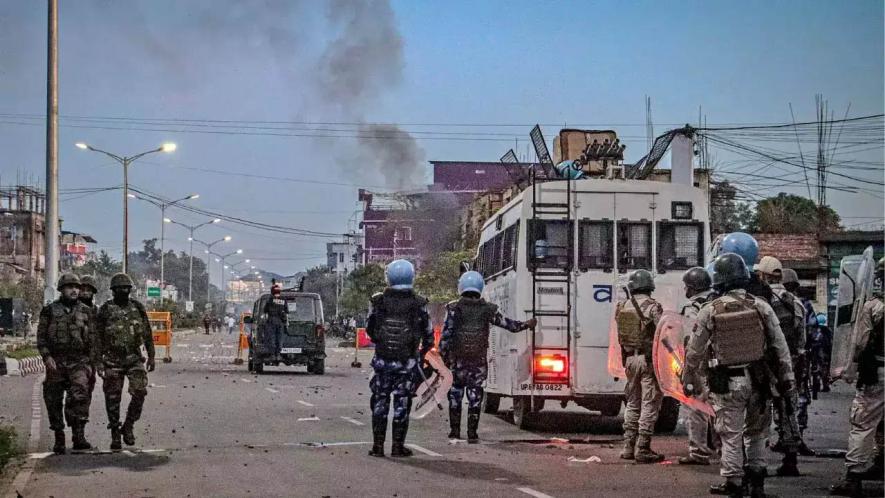The reimposition of the Armed Forces (Special Powers) Act (AFSPA) in certain regions of Manipur has sparked widespread discussions, given the ongoing ethnic tensions between the Kuki and Meitei communities. Let us delve into the developments, the implications of AFSPA, and the broader debates surrounding its enforcement.
Recent Developments
Since May 2023, Manipur has witnessed intense ethnic conflict between the Kuki and Meitei communities. This unrest has led to significant violence, including fatalities, rapes, kidnappings, and displacement of civilians.
In response to the deteriorating security situation, the government has declared six police station areas across five districts in Manipur as “disturbed areas,” reimposing AFSPA. These measures aim to empower armed forces to assist in maintaining law and order.
Also Read: 10 Militants Die in Attack on Manipur CRPF Camp: What Happened?
What is AFSPA?
AFSPA, enacted in 1958, grants special powers to armed forces in “disturbed areas” to:
- Use force or open fire after due warning to maintain order.
- Conduct arrests without a warrant on reasonable suspicion.
- Search premises without prior approval.
- Provide immunity to armed forces personnel from prosecution for actions under the Act unless sanctioned by the central government.
This Act has been implemented across several northeastern states, including Arunachal Pradesh, Assam, Manipur, Meghalaya, Mizoram, Nagaland, and Tripura.
Arguments for Reimposing AFSPA
- Border Security: Ensures stability in areas prone to cross-border insurgency.
- Constitutional Backing: Upheld by the Supreme Court with checks to prevent misuse.
- Counter-Insurgency: Vital for addressing insurgent activities in volatile regions.
- National Security: Provides a framework for armed forces to restore normalcy in conflict zones.
Criticism of AFSPA
- Violation of Human Rights:
- Alleged misuse, including arbitrary arrests, custodial violence, and lack of accountability.
- Breaches fundamental rights such as the right to life, privacy, and freedom.
- Colonial Legacy: Comparisons with oppressive laws like the Rowlatt Act.
- Erosion of Federalism: Imposition without adequate consultation with state governments.
- Undermining Civil Authority: Increased dependency on military interventions disrupts local governance.
Supreme Court on AFSPA
The Supreme Court has acknowledged AFSPA’s legality but emphasized preventing its misuse. Recent judgments clarified that while armed forces have operational immunity, accountability must be maintained to avoid abuse of power.
The Way Forward
- Building Trust: Strengthening relationships between the armed forces, civil authorities, and local communities.
- Inclusive Governance: Ensuring bottom-up governance with consultations from local bodies to the central government.
- Effective Peace Accords: Reviewing and implementing agreements to address underlying grievances.
- Safeguarding Human Rights: Balancing security needs with respect for civilian rights.
- Connectivity: Bridging infrastructural and cultural divides between the Northeast and mainland India to foster unity.
Conclusion
AFSPA remains a polarizing law, balancing national security and individual freedoms. Its reimposition in Manipur underscores the urgent need for a long-term strategy addressing the root causes of ethnic conflicts, ensuring peace, and restoring normalcy in the region. Effective governance, transparency, and human rights protection will be pivotal in achieving these goals.
Follow US





